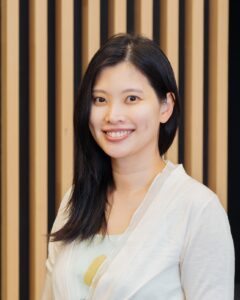
Assistant Professor Gloryn CHIA
- PhD University of Cambridge, UK
- Postdoctoral fellow, Columbia University, USA
- Department of Pharmacy and Pharmaceutical Sciences, National University of Singapore
- 18 Science Drive 4, Singapore 117543
- Tel: +65 6601 3977
- Fax: +65 6779 1554
- Email: phagcl@nus.edu.sg
The overarching goal of the lab is to develop novel vaccines and stem cell therapies for treatment of cancer and other human diseases.
Cancer Vaccines
Personalized neoantigen vaccines are emerging as a class of highly promising immunotherapy. Although vaccination against infection-associated tumours for cancer prevention has been successful, progress for vaccination against non-infectious tumours, which make up the majority of the cancers, is impeded by limited immunogenicity. By harnessing the power of new genomic technologies, scientists are now better equipped to re-interrogate the cancer neoantigen landscape, and in a patient-specific manner. Neoantigens are antigens that arise from mutations in cancer cells that are not present in normal cells. They thus represent excellent targets for immunotherapy due to their specific expression in tumour cells and potential lack of side effects. Indeed, recent clinical trials showed that neoantigen vaccines exhibit high clinical efficacy, and are lauded to be a game-changer for cancer treatment. Despite remarkable success in early clinical trials, there are challenges that will potentially impede clinical implementation of cancer vaccines. Thus, we seek to identify and address current gaps in cancer vaccine development. Leveraging on the ability of stem cells to generate multiple types, we will engineer and differentiate stem cells into cells capable of activating cytotoxic T-cells, the primary tumour-killing cells. Specifically, we aim to generate a highly versatile and scalable ‘off-the-shelf’ source of artificial antigen-presenting cells starting from genetically engineered induced pluripotent stem cells. This technology circumvents the problems associated with dendritic cell vaccine delivery and further provides a platform to rapidly screen and select immunogenic tumour-specific neoantigens for clinical applications. The overarching goal is to address critical steps in improving the efficacy of neoantigen vaccines, with the ultimate aim of translating the research findings into clinical practice and personalizing cancer treatment.
Education/Training
| 1st Nov 2019 | Assistant Professor, National University of Singapore, Department of Pharmacy |
| Aug 2018 – Oct 2019 | Senior Scientist, Merck Sharp & Dohme (MSD) |
| Mar 2016 – Aug 2018 | Research fellow, Bioprocessing Technology Institute, The Agency for Science, Technology and Research (A*STAR) |
| Aug 2013 – Feb 2016 | Postdoctoral fellow, Department of Pediatrics, Columbia University |
| Oct 2009 – Feb 2013 | Ph.D. Department of Physiology, Development and Neuroscience, The Wellcome Trust-MRC Centre for Stem Cell Research, University of Cambridge |
| 2021 | L’Oréal UNESCO for Women in Science Fellowships award |
| 2020 | National Research Foundation Fellowship |
| 2018 | NMRC Young Individual Research Grant |
| 2013 | A*STAR International Fellowship |
| 2008 | Wellcome Trust 4-year PhD Scholarship |
| 2008 | Cambridge Commonwealth Trust Bursary |
| 2009 | Overseas Research Award |
- Chia G*, Mulas C*, Jones KA, Hodgson AC, Stirparo GG, Nichols J. (2018) Oct4 regulates the embryonic axis and coordinates exit from pluripotency and germ layer specification in the mouse embryo. Development; 145(12). *co-first
- Lee E, Sivalingam J, Lim ZR, Chia G, Shi LG, Roberts M, Loh YH, Reuveny S, Oh SK. (2018) Review: In vitro generation of red blood cells for transfusion medicine: Progress, prospects and challenges. Biotechnol Adv;36(8):2118-2128.
- Chia G, Agudo J, Treff N, Sauer MV, Billing D, Brown BD, Baer R, Egli D (2017). Genomic instability during reprogramming by nuclear transfer is DNA replication dependent. Nat Cell Biol; 19(4):282-291.
- Sagi I, Chia G, Golan-Lev T, Peretz M, Sui L, Sauer M.V., Egli D, Benvenisty N (2016). Derivation and differentiation of haploid human embryonic stem cells. Nature; 7;532(7597):107-11.
- Grossman L. C, Chia G, Zuccaro M, Sadowy S, Prosser R, Sauer M. V., & Egli D (2016). Determination of timing and mechanism of diploidization of haploid parthenogenetic and androgenetic human embryos. Fertility and Sterility; 106(3), e50.
- Chia G*, Kort D*, Tanaka A, Treff N, Vensand L, Micucci S, Prosser R, Lobo R, Sauer M, Egli D (2015). Human embryos commonly form abnormal nuclei during development: a mechanism of DNA damage, embryonic aneuploidy, and developmental arrest. Hum Reprod; 31(2):312-23. *co-first
- Chia Le Bin G, Muñoz-Descalzo S, Kurowski A, Leitch H, Lou X, Mansfield W, Etienne- Dumeau C, Grabole N, Mulas C, Niwa H, Hadjantonakis AK, Nichols J. (2014). Oct4 is required for lineage priming in the developing inner cell mass of the mouse blastocyst. Development; 141(5):1001-10.
- Radzisheuskaya A, Chia Gle B, dos Santos RL, Theunissen TW, Castro LF, Nichols J, Silva JC. (2013). A defined Oct4 level governs cell state transitions of pluripotency entry and differentiation into all embryonic lineages. Nat Cell Biol; 15(6):579-90.
- Livigni A, Peradziryi H, Sharov AA, Chia G, Hammachi F, Migueles RP, Sukparangsi W, Pernagallo S, Bradley M, Nichols J, Ko MS, Brickman JM. (2013) A conserved Oct4/POUV- dependent network links adhesion and migration to progenitor maintenance. Curr Biol; 18;23(22):2233-44.
- Chia G, Egli D (2013). Connecting the cell cycle with cellular identity. Cell Reprogram; 15(5):356-66.
- Egli D, Le Bin GC. (2013). Tying replication to cell identity. Nat Rev Mol Cell Biol; 14(6):326.
- Mean Rank, Equipercentile and Regression Mapping of World Health Organization Quality of Life Brief (WHOQOL-BREF) to EuroQoL 5 Dimensions 5 Levels (EQ-5D-5L) Utilities. Accepted by Medical Decision Making in Nov 2017.
- Reliability and Validity of the English, Chinese and Malay language versions of the WHOQOL-BREF in Singapore. Accepted by Annals, Academy of Medicine Singapore in Nov 2017.
- Women Preferences, Willingness-to-Pay and Predicted Uptake for Single Nucleotide Polymorphisms Gene Testing to Guide Personalized Breast Cancer Screening Strategies: A Discrete Choice Experiment.
- EQ-5D health status as predictor of health services utilization.
- Cost-effectiveness of various patient selection protocols (who to test, when to test and what to test) in preemptive pharmacogenotyping.

